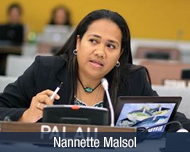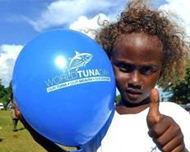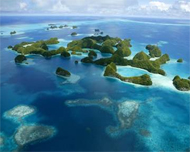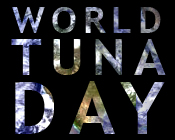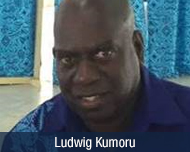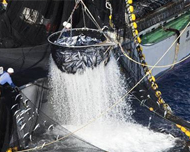
MSC Defends Mixed Certification From OPAGAC Criticism
The MSC has responded in defence of certifying only the free-school operations of a mixed tuna purse seine fishery, after OPAGAC, the umbrella industry association representing the Spanish tuna purse seine fleet, has challenged the merits and scientific rigor of such accreditation, stating that these fleets still largely depend on drifting FADs (dFADs). MSC’s main message is that it works to incentivize the most sustainable methods through market preference for MSC certified catch.
In a study published in scientific journal, Marine Policy, Guillermo Moreno, Miguel Herrera and Julio Morón of OPAGAC asks ‘FAD or not to FAD: A Challenge to the MSC and its conformity assessment bodies on the use of units of assessment and units of certification for industrial purse seine fisheries’.
The association considers that an industrial tuna purse seine fleet should only be certified as a whole, for its total operations, and not on “artificially construed components of the fishery”, referring to the mixed free-school and FAD fisheries in the WCPO, of which PNA and more recently also Tri Marine, received MSC certification for free school caught skipjack and yellowfin (excluding the FAD caught tuna).
While free-school operations in such fisheries have been certified as sustainable by MSC, OPAGAC states that fish caught in association with dFADs, however, is not deemed to meet the MSC standard and has not been accredited.
In response to the challenge, representatives from MSC told Atuna that it seeks to promote the use of responsible fishing techniques, and that “by allowing the separation of tuna caught using drifting FADs, anchored FADs and free-school fishing methods, we aim to incentivize a preference towards more sustainable techniques through market preference to MSC certified catch.”
MSC stresses that in the case of tuna fisheries where only part of the catch is seeking MSC certification, the relevant fisheries must be certified to the MSC Chain of Custody (CoC) Standard, requiring that they keep MSC certified catch separate and clearly labelled from non-certified catch.
Moron believes, however, that “by certifying part of the catch, MSC encourages the misuse of dFADs and does not help to address the issues surrounding their use.” He says that if MSC wants to improve sustainability of tuna purse seining, all school detection systems should be included in certification, which OPAGAC is working towards through a Fisheries Improvement Project (FIP) in cooperation with WWF.
MSC adds that “we are aware of the risks associated with one vessel catching both certified and non-certified catch and are working with certifiers to ensure that the MSC CoC requirements are effective and adhered to.”
This doesn’t just cover the strict separation of catch, but the weight of certified catch being recorded along the supply chain to guarantee that no substitution takes place, it explains.
The MSC certified free-school skipjack and yellowfin fishery in the PNA is used as an example by MSC as one that has developed a sophisticated traceability system to ensure effective segregation and identification of certified and non-certified catch. It explains that this starts at sea with specially-trained observers, and continues through separation and storage in on-board wells, through transhipment to carrier vessels, landing, and then through production.
Pacifical, the marketing arm of the MSC certified free-school tuna from the PNA, has also reacted to OPAGAC’s report and comments, stating that it fully shares the worries that the writers express over the possibilities of breaches of the MSC CoC in mixed fisheries. Managing Director, Henk Brus, says that he warmly welcomed the critical report, and that similar concerns were the basis of the PNA and Pacifical to develop, in 2011, an extremely stringent and totally independently monitored CoC system which is based on 100 percent on board observer coverage on purse seiners, and transshipment, as well as discharge; a scheme with over 20 critical control points.
“Pacifical feels fully confident that the PNA MSC CoC has the highest traceability standard in the world, and fully agrees with the writers of the report that any MSC CoC scheme where the operator himself has any influence over the decisions made on the final MSC eligibility, has no credibility, as it is in effect, self-certification. PNA exclusively uses independent third party observers from national programs and supplemented with surveyors in ports, and further there are other additional checks and balances in the scheme,” Brus adds.
OPAGAC believes that the minimum requirement of MSC third party assessors who certify purse seine fisheries should be to fully demonstrate how FAD-free can be clearly identified from FAD-associated catches. However, it states that even if this can be demonstrated, “it still leaves serious questions about the ethics of artificially separating catches taken by the same vessels during the same fishing trip where supposedly they only fish ‘sustainably’ part of the time.”
While MSC recognizes that there can be some risks with part-fishery certification, it is sure that assessments and checks are making sure these are not a concern. It adds that the MSC program provides a mechanism for demonstrating best practice, and drives change and improvement, noting that over the course of certification, the vast majority of fisheries are required to make at least one improvement to strengthen or further monitor the sustainability of their operations and in order to maintain their accreditation.


